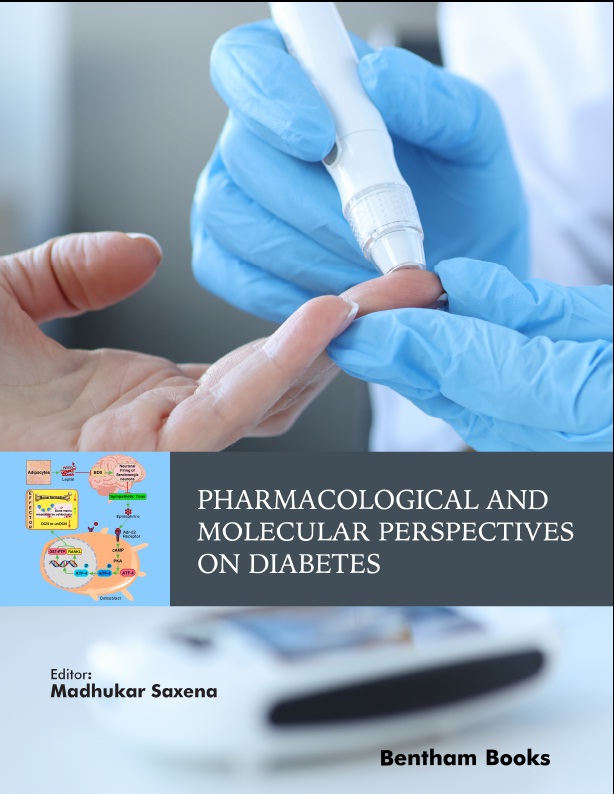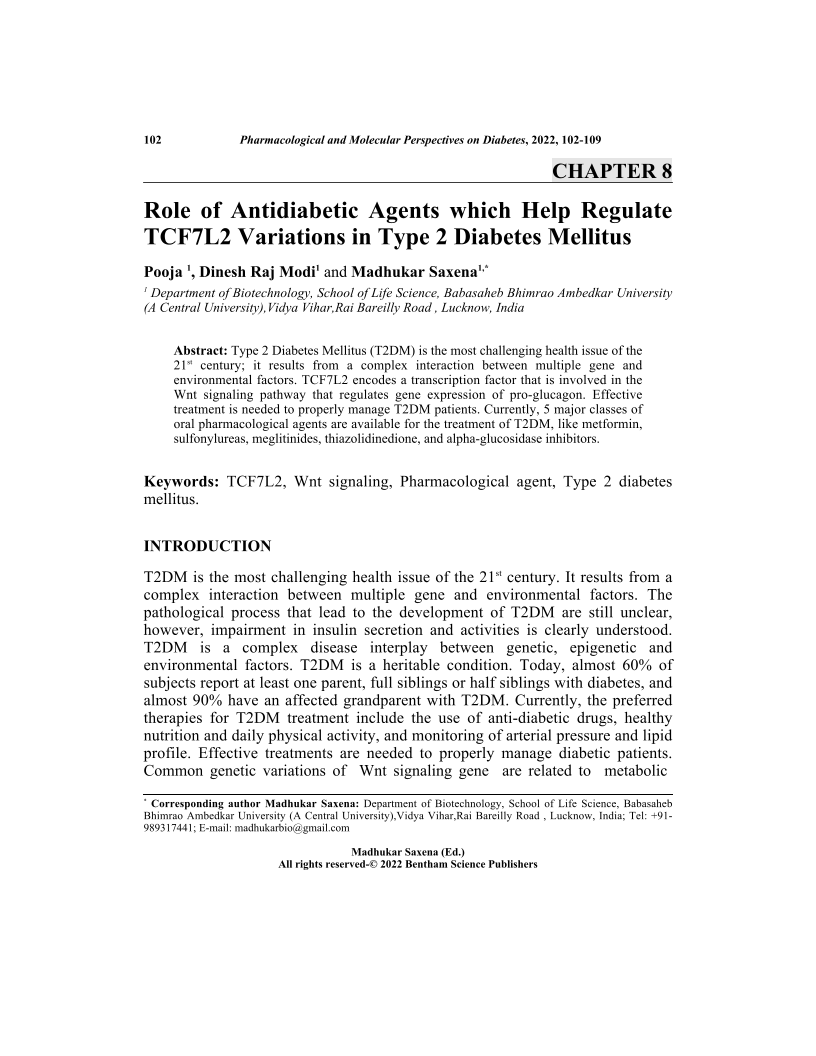Role of Antidiabetic Agents which Help Regulate TCF7L2 Variations in Type 2 Diabetes Mellitus

- Authors: Pooja1, Dinesh Raj Modi2, Madhukar Saxena3
-
View Affiliations Hide Affiliations1 Department of Biotechnology, School of Life Science, Babasaheb Bhimrao Ambedkar University(A Central University), Vidya Vihar,Rai Bareilly Road , Lucknow, India 2 Department of Biotechnology, School of Life Science, Babasaheb Bhimrao Ambedkar University(A Central University),Vidya Vihar,Rai Bareilly Road , Lucknow, India 3 Department of Biotechnology, School of Life Science, Babasaheb Bhimrao Ambedkar University(A Central University),Vidya Vihar,Rai Bareilly Road , Lucknow, India
- Source: Pharmacological and Molecular Perspectives on Diabetes , pp 102-109
- Publication Date: April 2022
- Language: English
Preview this chapter:



Role of Antidiabetic Agents which Help Regulate TCF7L2 Variations in Type 2 Diabetes Mellitus, Page 1 of 1
< Previous page | Next page > /docserver/preview/fulltext/9789815040227/chap8-1.gif
Type 2 Diabetes Mellitus (T2DM) is the most challenging health issue of the 21st century; it results from a complex interaction between multiple gene and environmental factors. TCF7L2 encodes a transcription factor that is involved in the Wnt signaling pathway that regulates gene expression of pro-glucagon. Effective treatment is needed to properly manage T2DM patients. Currently, 5 major classes of oral pharmacological agents are available for the treatment of T2DM, like metformin, sulfonylureas, meglitinides, thiazolidinedione, and alpha-glucosidase inhibitors
Hardbound ISBN:
9789815040234
Ebook ISBN:
9789815040227
-
From This Site
/content/books/9789815040227.chap8dcterms_subject,pub_keyword-contentType:Journal -contentType:Figure -contentType:Table -contentType:SupplementaryData105
/content/books/9789815040227.chap8
dcterms_subject,pub_keyword
-contentType:Journal -contentType:Figure -contentType:Table -contentType:SupplementaryData
10
5
Chapter
content/books/9789815040227
Book
false
en

